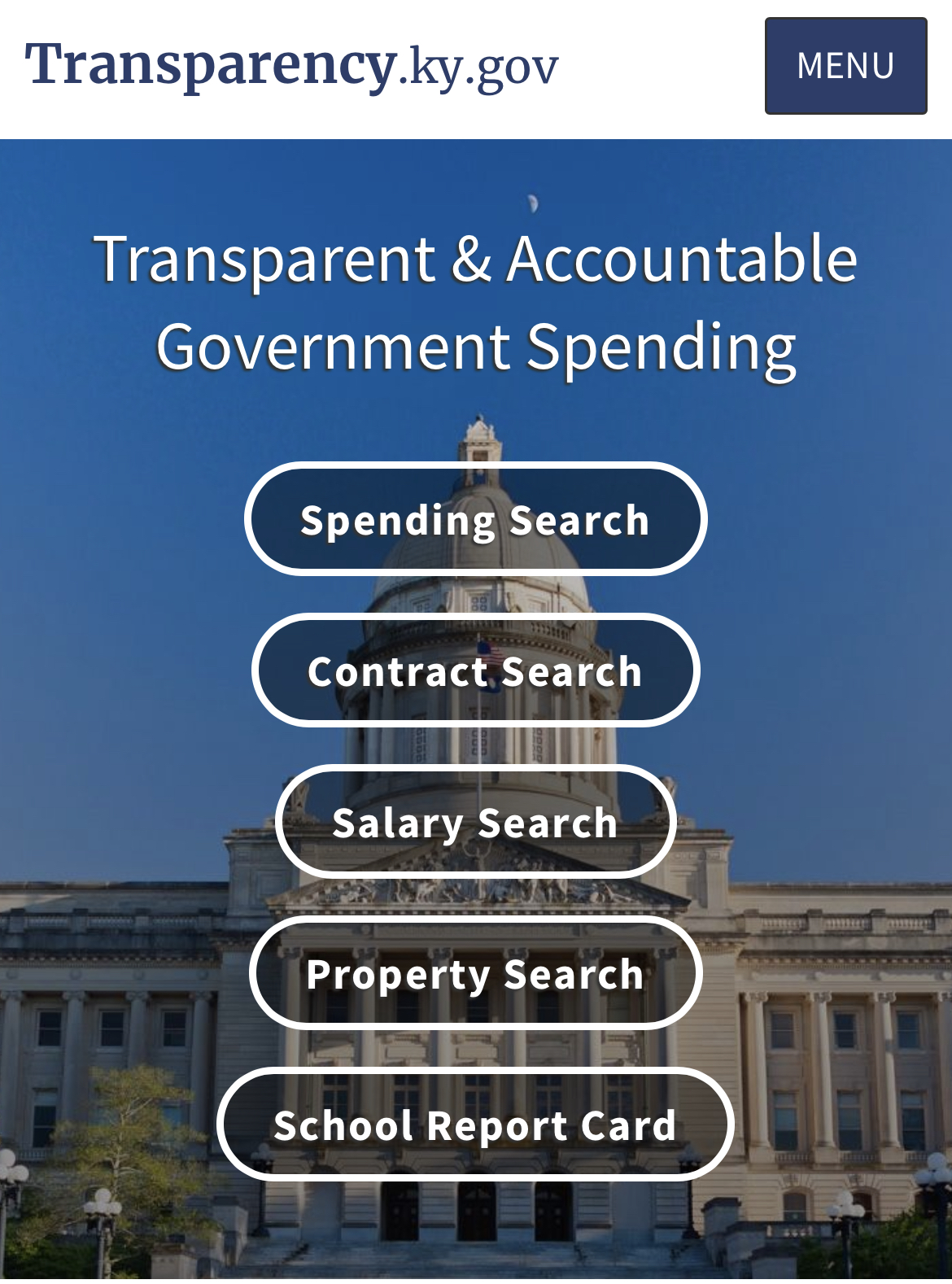

Courier Journal investigative reporter Jonathan Bullington reminds readers that a trove of non-exempt information relating to Louisville Metro Government can be accessed — without submitting a formal open records request — through the Louisville Open Data Portal.
https://www.courier-journal.com/story/news/local/2022/08/01/louisville-…
The portal has been criticized in responses to previous Kentucky Open Government Coalition posts. We welcome observations about its efficacy, accuracy, and verifiability.
Nevertheless, Bullington reports, Louisville is one of 50+ U.S. cities that has been “certified as ‘What Works Cities’ by the nonprofit Bloomberg Philanthropies for their use of data.” Louisville and Los Angeles, he notes, “are the only two cities certified as ‘platinum.’”
The portal affords easy access to data otherwise subject to public inspection under the open records law (but with none of the bureaucratic hurdles) on topics as wide ranging as expenditures and salaries to animal licensure and crime reporting.
The Kentucky state government equivalent — the Transparency or Open Door Portal — can be found at https://transparency.ky.gov/Pages/default.aspx
It is described as a “bipartisan, multi-agency effort to provide a more transparent, accountable state government, to allow you the opportunity to find out how your tax dollars are spent, and to move our state forward.” It includes “searchable databases for grants, contracts and line item expenditures,” “taxes,” and “up-to-date salary information for state employees.”
See, for example, this Lexington Herald-Leader story, “Here’s how many Kentucky state employees make more that $100K.”
https://www.kentucky.com/news/state/kentucky/article261519512.html
As it is so often inclined to do, the General Assembly and Legislative Research Commission have asserted their “independence” by opting out of the Kentucky Open Door Portal, and creating something like their own.
“Easily accessible information” on the state website is therefore limited to the Executive and Judicial Branches.
At their best, transparency websites like these reduce the burden on public agencies to produce the same non-sensitive data — data that does not implicate an exception to the open records law and therefore the need for governmental confidentiality — and expand access to public information without regard to residency and/or intended commercial use.


